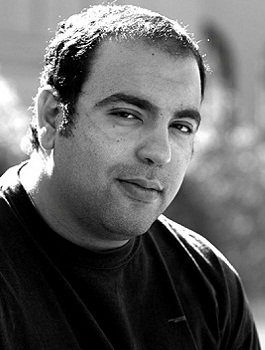
In March 2002, while coming back to the US from a weekend in Mexico, I was stopped and heavily interrogated at the US border. My only mistake appeared to be simple birthrights: name, age and religious affiliations. The incident has passed calmly but the learning was immense. The question I asked myself then was: When does personal freedom stop and national security start? This question is very relevant in modern day Egypt, as the state wages an all-out war against resurfacing terrorism. We must stop and ask: What is the fine line between idealism and terrorism? And is trespassing on perceived “rights” defensible?
The current debate on Egypt’s fight against terrorism has exposed a dichotomy between hawks and doves. This divide is reflected in approaches regarding how to deal with the current situation. The doves speak of dialogue, inclusion and political participation, whereas the hawks call for zero tolerance, sequestering and exclusion. In this debate, the buzzword remains: “human rights”.
It was once said that we have come to define modernity largely in terms of individual rights, the curtailing of which is considered to be a heinous crime. However, a lingering “but when”, is certainly due here. It must be said, that the preservation of this sort of idealism is not the only way to define progress. The preservation of human lives certainly takes precedence. While the definition of a greater good is always illusive and may lead us straight into the gates of hell, we continue to face limited choices.
As some voices rebuke with great disdain Egypt’s government decision to declare the Muslim Brotherhood as a terrorist organisation, they fail to see the full picture. While such a measure is largely draconian, it is no secret that the Brotherhood’s current destabilising actions either directly promote terrorism or provide the right environment for it to thrive; neither can be tolerated. Simply standing on the high moral grounds of categorically denouncing any infringements on liberties might provide solace to modern day idealists. However, between a crunchy granola stance and a full-on witch hunt, there are few stones that remain unturned. The answer is, therefore, not completely shunning tough measures but simply controlling the extent to which they can be applied. Unfortunately, this usually leads us down the path of unintended results. However, what choices do we really have?
There appear to be no decent choices in times of terror–there are only dreadful ones. It cannot be denied that extreme measures against liberties are morally agonising and have always been historically treacherous. In some circumstances, our real choices between national security and moral consequences will be between controlled and uncontrolled liberties. We will be wasting time and lives in pretending differently. In the fight against terrorism, some of the world’s most established democracies did not shy away, at times, from doing what they thought is necessary; in many cases their choices were shocking to any idealist. Unfortunately, we live in those awful times.




